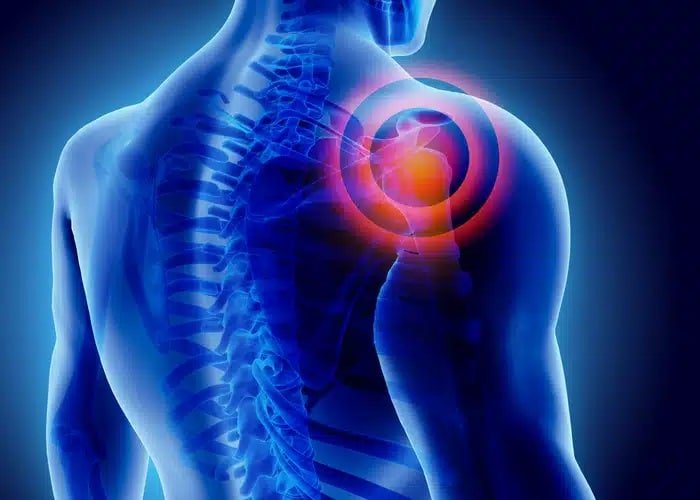How to treat Rotator Cuff Injury
What is rotator cuff injury?
The rotator cuff is a group of muscles and tendons that surround the shoulder joint, keeping the head of your upper arm bone firmly within the shallow socket of the shoulder. Injuries can occur due to acute trauma, chronic overuse, or gradual aging.
Rotator cuff Injury Symptoms:
Pain and tenderness in the shoulder, especially when reaching overhead or behind the back.
Weakness in the shoulder.
Loss of shoulder motion.
Night pain that can interfere with sleep.
Rotator cuff Injury cause:
Repetitive Stress: Repeated overuse of the shoulder can lead to tendon wear and tear.
Acute Injury: A sudden injury from lifting heavy objects incorrectly or during sports.
Age-Related Degeneration: Tendons wear down with age, increasing the risk of injury.
Poor Blood Supply: As you age, the blood supply to the rotator cuff tendons decreases, hampering the body’s ability to repair tendon damage.
Improper Technique: Using poor technique during physical activities, especially in sports or jobs requiring repetitive shoulder movements.
Initial Treatment Steps:
Rest: Avoid activities that cause shoulder pain.
Ice: Applying ice to the shoulder for 15-20 minutes every few hours can help reduce pain and swelling.
Anti-inflammatory medications: NSAIDs (non-steroidal anti-inflammatory drugs) can help reduce inflammation and pain.
Physical therapy: Early physical therapy is crucial for restoring range of motion and strengthening shoulder muscles.
Physical Therapy Techniques:
Stretching Exercises: To improve flexibility and reduce tension in the muscles around the shoulder.
Strengthening Exercises: Focused on improving the strength of the rotator cuff muscles and the muscles around the shoulder blade to stabilize the joint.
Manual Therapy: Techniques such as massage and mobilisation to improve movement and reduce pain.
Advanced Treatment Options:
Corticosteroid Injections: These may be recommended for severe pain but are generally limited to temporary relief.
Ultrasound Therapy: Helps promote tissue healing and is used in conjunction with physical therapy.
Surgical Treatments:
If non-surgical treatments fail to alleviate symptoms or in cases of severe tears, surgery might be considered. Options include:
Arthroscopic Repair: Minimally invasive surgery to repair the torn rotator cuff.
Open Tendon Repair: In more severe cases, an open surgery might be necessary to repair the damaged tissues.
Tendon Transfer: If the torn tendon is irreparable, a tendon transfer might be performed.
Shoulder Replacement: In cases where the rotator cuff injury has led to severe arthritis, a partial or complete shoulder replacement may be recommended.
Rehabilitation and Recovery:
Post-Surgical Rehabilitation: Begins with gentle passive exercises to increase mobility, followed by more active exercises to strengthen the shoulder.
Gradual Return to Activity: It’s important to gradually return to regular activities guided by pain levels and mobility improvements.
Preventative Measures:
Regular Exercise: Including exercises that strengthen the shoulder, upper back, and core to ensure proper support and stability for the shoulder.
Proper Technique: Using proper form and techniques when performing activities that involve the shoulder.
Avoid Overload: Avoid repetitive stress on the shoulder by limiting overhead activities and taking frequent breaks.
Wrap-Up:
Managing a rotator cuff injury requires a comprehensive approach involving rest, medication, therapy, possibly surgery, and a careful rehabilitation process. With the right treatment and preventive measures, most individuals can return to their normal activities with full functionality of the shoulder.
FAQs:
Q: How long does it take to recover from a rotator cuff injury? A: Recovery time can vary widely depending on the severity of the injury and the treatment method, ranging from a few weeks for minor injuries to several months or more for surgical recovery.
Q: Can rotator cuff injuries heal on their own? A: Minor injuries may heal with conservative treatment; however, severe tears often require surgical intervention.
Q: What activities should I avoid with a rotator cuff injury? A: Avoid activities that cause pain or discomfort in the shoulder
We hope this information is useful for you. If you need advice or have any questions about our treatments, please contact us. You can find us near Essex Rd in Angel Islington. We are always happy to help. If you like this blog, please share!

